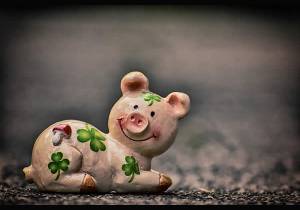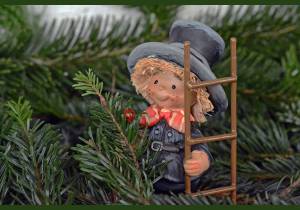Celebrating the New Year's Day in Germany: dates, celebration, conventional congratulations, greetings, traditions and customs on the New Year's Day
On this page you will find a description of the New Year's Day festivities in Germany. Celebration dates by year, customs and traditions common for Germany on the New Year's Day, a description of the origin, congratulations & greetings.
Dates for the New Year's Day celebration in Germany
The date of the New Year's Day celebration in Germany remains unchanged every year and falls on 1 January.
The New Year's Day celebration date in Germany:
Thursday 1 January 2026 .
Below is a list of dates for celebrating the New Year's Day in Germany by year, provided that in previous and subsequent years the present practice and time of the holiday celebration is preserved:
- Wednesday, 1 January 2025 - New Year's Day 2025Germany Germany
- Thursday, 1 January 2026 - New Year's Day 2026Germany Germany
- Friday, 1 January 2027 - New Year's Day 2027Germany Germany
- Monday, 1 January 2029 - New Year's Day 2029Germany Germany
Related holidays
- Sylvester , 31 December 2026
Other names of the holiday
Holiday name in German: Neujahrstag.
We are not aware of any other names for the New Year's Day in Germany.
Holiday status in the territory of Germany
New Year's Day is an extra non-working day throughout Germany – it’s a national holiday.
Wishes and congratulations, greetings on the New Year's Day in Germany
In Germany, the following New Year’s Eve/ Day greetings are used:
- "Alles Gute im neuen Jahr" (All the best for the new year);
- "Viel Glück im neuen Jahr" (Lots of happiness in the new year);
- "Prosit Neujahr" (Happy New Year);
- "Einen guten Rutsch" (literally – Happy glide) - The expression comes from the Hebrew Gut Rosch, which means "Beginning," and the wish itself means "have a good beginning," wishing that the plans for the new year will be fulfilled or that the whole year will go as well as its first day.
Description of the New Year's Day celebration: customs and traditions:
As in other cultures, the New Year's Eve is one of Germany's favourite holidays and is celebrated on the last night of the year that was. December 31 is called "Sylvester" or Saint Sylvester’s Day (in German: Silvester) in Germany, see the page below for more details.
People in Germany celebrate this holiday in different ways: some in a quiet and peaceful family atmosphere, others, and this is more common, with merriment and noise. On the New Year's Eve, most people in Germany go out into the streets, setting off fireworks, lighting sparklers, fairy lights - creating lots of light and noise, thus welcoming the new year and saying goodbye to the outgoing one.
On the stroke of 12 o'clock at night they drink alcohol, champagne (or sparkling wines) and wish happiness.
Many traditions, gifts and even typical New Year's Eve dishes are associated with wishing happiness and good luck. Grape dishes green leafy vegetables, beans, pork, or fish are usually served at the New Year's table. Beans, peas and lentils are thought to symbolize money, and herring and carp, which are also cooked and/or served at the New Year's celebrations, bring good luck. People present each other with figurines of pigs, clovers, horseshoes, chimney sweeps, or with gifts featuring them, as well as pretzels, the New Year's Eve pastries - something that according to ancient superstitious beliefs brings good luck.
Some places in Germany are most popular for celebrating the New Year's Eve en masse, they include:
- Berlin, the Brandenburg Gate,
- Hamburg, the harbour, and the Alster,
- Islands: Rügen, Sylt,
- Munich: various places,
- and more.
In many of these places you can enjoy beautiful fireworks and public festivities.
The origin of the New Year's Day holiday
As Professor of German Studies G. Richter writes in his book, in the past on the New Year's Eve people lit torches and made fires, beat drums, tambourines and clang bells, trying to chase away evil spirits and demons, so that in the new year they did not cause trouble for people. This tradition has survived to this day, on the New Year's Eve people put on a lot of lights and make a lot of noise, although today the origin of these attributes is void of its original meaning.
December 31 is called "Sylvester" or Saint Sylvester's Day (in German: Silvester) in Germany; this name is associated with the Day of St. Sylvester - Pope Sylvester I, whose death day falls on December 31.
Photos, pictures for the holiday
To enlarge and view the picture, click on it with the mouse button.
-

The New Year's Eve fireworks are a typical entertainment in many German cities
-

A special dessert for the New Year's Eve, Christmas cookies
-

Pig figurine with cloverleaves as a symbol of happiness
-

A chimney sweep figurine at the New Year tree, a chimney sweep as a symbol of happiness
RU-GELD.DE Team
Last updated:



